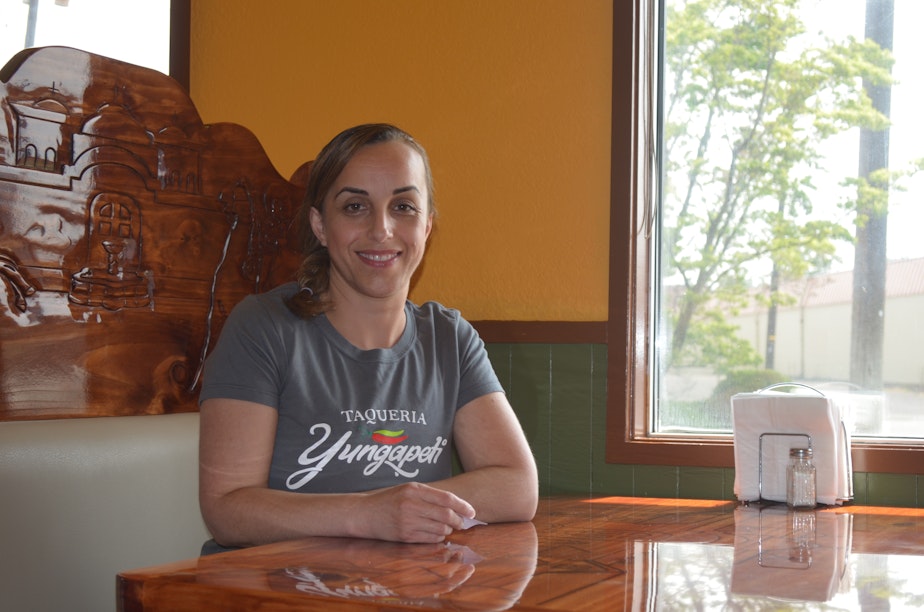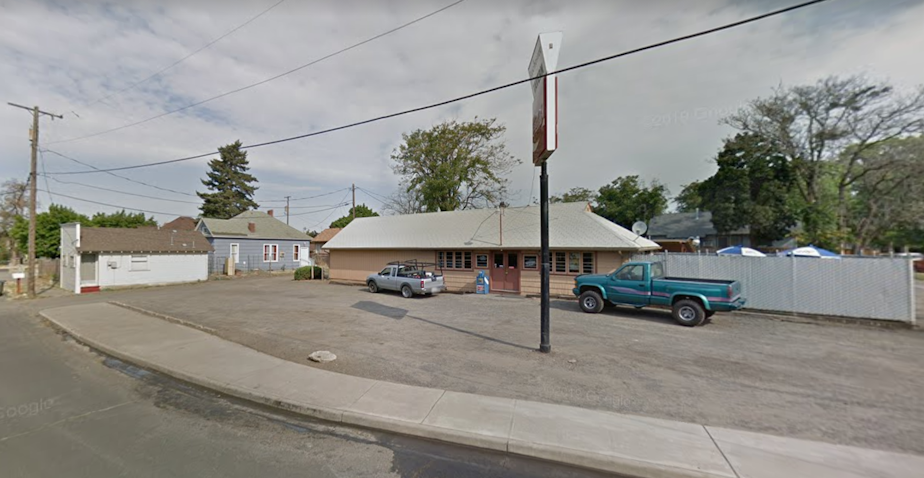In this Covid hot zone, unvaccinated people fear side effects — or want more answers

The Border Tavern sits on a gravel parking lot in Walla Walla, in eastern Washington.
On a recent Monday evening, on the bar patio, Jesse Garner, 47, held forth about housing costs. Garner, who works in construction, has not gotten the coronavirus vaccine. He said he doesn't want to get sick the way he did a decade ago, when an ex-girlfriend talked him into getting a flu shot.
"I got sicker than a dog for a week long, at least," he said. "Miserable."
Garner said it was worse than any case of flu he's had.
Covid cases in Walla Walla have come roaring back — in part because of low vaccination rates. It now has one of the highest rates of Covid per capita in the country. This month, it had more daily cases than it did during the worst of last summer’s surge.
In Walla Walla County, half the population is unvaccinated. Compare that to King County, where seven in 10 people have gotten at least one dose of the Covid vaccine.
The reasons people share for refusing the vaccine are varied: Some cite a lack of trust in government; others feel their questions about the vaccine haven't been answered; and yet others don't want to cave to what they see as social pressure.
“I’m just not going to take a shot because my buddy told me to take a shot, that, ‘Let’s go do it! Come on, man, let’s stop the virus or whatever,’” Garner said.
Sponsored
Garner didn’t specify a friend who encouraged him to get the vaccine; he, his girlfriend, and his 15-year-old son are unvaccinated, as are most of his coworkers and the two people he chatted with at the Border Tavern.

About a mile away, at the Taqueria Yungapeti, manager Claudia Reyes, 42, said she has also refused the vaccine — so far.
"You can still get Covid even if you’ve had the vaccine; you just won't get it as bad," Reyes said. "You can still spread it. So that's why I chose not to get the vaccine."
Reyes said she and her whole family got Covid around the New Year, and their cases weren’t too serious, so she figures she could weather it again. She said she let her kids make their own decisions, and they chose not to get the vaccine, because they don't like shots.
Sponsored
"I think about getting the vaccine," Reyes said, but she wants to wait a little longer. "Maybe, like, when it's getting during winter time. Maybe I feel like I'm gonna need it more at that time."
The sense of urgency is creeping up on her, however. In mid-July, one of her sons needed his appendix removed. When they got to the general hospital in Walla Walla, they learned that he wouldn't get a bed, because the hospital was full of Covid patients. It’s been that way off and on since mid-June.
This got Reyes thinking about her husband, who, back in January, had a worse case of Covid than the rest of them.
“After they told me that there was no beds, I'm like, ‘Oh my gosh, do you want to go get your shot?’” Reyes said she asked her husband. Her husband said he did, so Reyes called a nearby clinic. “They're like, ‘Can he come right now?’ I'm like, ‘Can you go right now? Go!’ So he went.”
But, overall, vaccination in Walla Walla has slowed to a trickle.
Sponsored
Dr. Daniel Kaminsky, the county’s public health officer, said he doesn’t have a plan to reach people like Reyes or get them the information they want about the vaccine.
“I’m not a PR man. I don’t have a degree in communications,” Kaminsky said. “It’s not clear what messaging works. Some data suggests that information is pushing some people further away.”
He said that his aim is for people to continue trusting in public health.
“When this pandemic is over — which it eventually will be over,” he said, “I want people to come to public health. I don’t want them to hate public health. I don’t want to be public enemy number one.”
Reyes said she would welcome more information to help her make this decision. She said she would like to know how frequently people who’ve had the vaccine get Covid, how easily they transmit Covid, and how prevalent Covid is in her community.
Sponsored
Back at the Border Tavern, Jesse Garner said he has changed his mind about Covid, the disease. At first, he thought it was a hoax, but, then, six or seven months ago, his friend’s parents died of it.
“They were like in their 60s, 70s, and they both passed away within a month, and it was pretty unexpected,” he said. “That’s when it hit me that it was kind of real.”
His 15-year-old son’s maternal grandmother also died of Covid, just a few months ago.
Garner said he initially thought the Covid vaccine was a hoax too — though, he said, he’s now on the fence about that, because he has friends who’ve gotten it to protect their older relatives.
He said there’s only one person who could change his mind about getting the shot.
Sponsored
“My son would be the only one who [could] talk me into it,” Garner said. “That’s the only person I live for is my son, so, if he says it’s good, then I’ve got to do it.”




